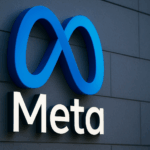Artificial intelligence, while a tool of significant potential, remains entangled in ongoing legal disputes. Two prominent Japanese media organizations, Nikkei and Asahi Shimbun, are the latest to enter a legal battle against the AI search engine Perplexity, accusing it of copyright infringement. The lawsuit underscores complex issues surrounding the use of digital content and intellectual property rights in an era dominated by fast-evolving technologies. The allegations indicate that Perplexity has allegedly used content from these two media companies without permission, raising broader questions about how such technologies interact with traditional content creators.
Lawsuits against Perplexity aren’t new. Previously, News Corp initiated legal action, alleging similar unauthorized use of content. Such cases highlight a repetitive pattern where AI-driven platforms purportedly infringe upon intellectual property. Unlike typical infringement cases, technological complexities add layers of challenges for all parties involved. Legal implications continue to evolve as AI technologies advance. Copyright disputes reflect the larger tension between technology firms and traditional media. Firms like Perplexity strive for AI innovations while navigating legal frameworks established for traditional content.
Why Are Nikkei and Asahi Shimbun Pursuing Legal Action?
Nikkei and Asahi Shimbun decided to initiate the lawsuit due to what they described as Perplexity’s unauthorized copying and storing of their content. Allegedly, the AI search engine bypassed technical safeguards intended to protect such materials. The firms argue that inaccuracies attributed to these outlets significantly harm their credibility. Demanding compensation of 2.2 billion yen, they also seek the removal of the articles stored by Perplexity.
How Has Perplexity Addressed Copyright Issues?
Despite these disputes, Perplexity is taking steps to mitigate such allegations by launching Comet Plus, a subscription service aimed at sharing revenue with publishers. This initiative seeks to address concerns about how AI platforms can use traditional media content sustainably. However, without responding to requests for comments, the company has not directly addressed the ongoing lawsuits. Pioneered as a business solution, the Comet Plus program represents efforts to align technology usage with publishing rights.
The narrative of AI’s intersection with media is further complicated by past incidents, such as the BBC’s accusations against Perplexity. The broadcaster claimed inaccuracies in the information provided by the AI, demanding accountability for “editorial slippages.” While AI’s potential to reshape content delivery is immense, its alignment with existing legal frameworks remains contested. Perplexity defended itself against these allegations, dismissing them as “manipulative and opportunistic.”
Understanding AI’s impact on the media involves addressing legal and ethical concerns. Alternative business models, like revenue-sharing from Comet Plus, are emerging. Achieving balance is complex as industry standards evolve. AI’s effect on journalism and its legal ramifications require collaborative efforts from stakeholders, offering solutions to the challenges faced by traditional media and technology firms.










